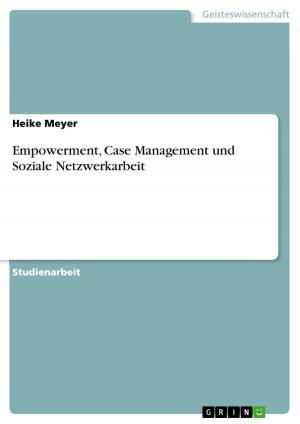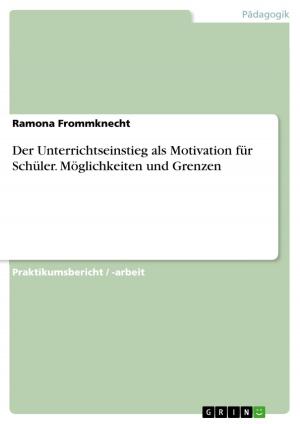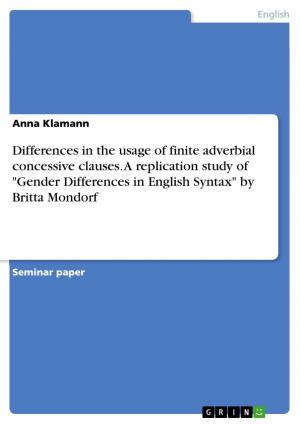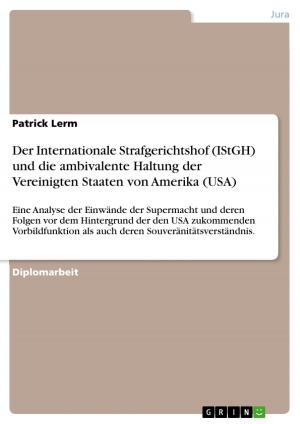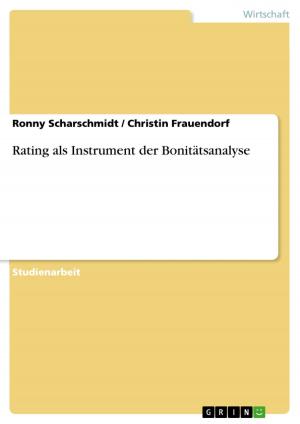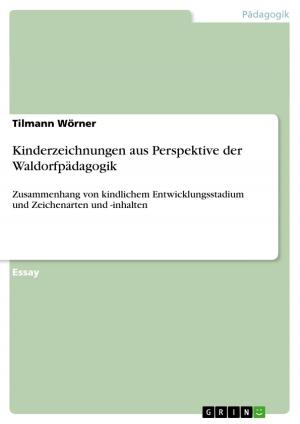Trauma as an invisible wound. A useful consideration?
Nonfiction, Social & Cultural Studies, Social Science, Cultural Studies, Ethnic Studies| Author: | Jil Hoeser | ISBN: | 9783668161146 |
| Publisher: | GRIN Verlag | Publication: | February 25, 2016 |
| Imprint: | GRIN Verlag | Language: | English |
| Author: | Jil Hoeser |
| ISBN: | 9783668161146 |
| Publisher: | GRIN Verlag |
| Publication: | February 25, 2016 |
| Imprint: | GRIN Verlag |
| Language: | English |
Essay from the year 2016 in the subject Cultural Studies - Basics and Definitions, grade: 2,7, University College London, language: English, abstract: In the present work, I will try to find an answer to whether trauma can be defined as an invisible wound or not. Trauma can be caused by different kinds of things and can happen to everyone: Not only firemen or policemen can be traumatized by what they have to deal with at work, trauma can also be caused by sexual abuse, wars, accidents and so on. Thus, a combat veteran can associate the sound of a helicopter with a horrifying battle experience or a survivor of a bad train crash can identify the sound of a locomotive with the trauma of the crash. This already leads us to possible consequences of a traumatic experience, called posttraumatic stress disorder or simply PTSD. In the following paragraphs, I will try to set up a general definition of trauma, see how the body and soul react to traumatic experiences and how a trauma can be expressed. After that, I will analyse Wolfgang Borchert's short story Die Küchenuhr, an after-war story about the bombings in Hamburg. I will try to see parallels between the theoretical part of this essy and the short story, in order to answer the main question of this essay, whether trauma can be considered as an invisible wound or not.
Essay from the year 2016 in the subject Cultural Studies - Basics and Definitions, grade: 2,7, University College London, language: English, abstract: In the present work, I will try to find an answer to whether trauma can be defined as an invisible wound or not. Trauma can be caused by different kinds of things and can happen to everyone: Not only firemen or policemen can be traumatized by what they have to deal with at work, trauma can also be caused by sexual abuse, wars, accidents and so on. Thus, a combat veteran can associate the sound of a helicopter with a horrifying battle experience or a survivor of a bad train crash can identify the sound of a locomotive with the trauma of the crash. This already leads us to possible consequences of a traumatic experience, called posttraumatic stress disorder or simply PTSD. In the following paragraphs, I will try to set up a general definition of trauma, see how the body and soul react to traumatic experiences and how a trauma can be expressed. After that, I will analyse Wolfgang Borchert's short story Die Küchenuhr, an after-war story about the bombings in Hamburg. I will try to see parallels between the theoretical part of this essy and the short story, in order to answer the main question of this essay, whether trauma can be considered as an invisible wound or not.

